What should I do if my blood pressure just won't come down after taking a lot of antihypertensive drugs?
The situation mentioned in the question is most likely refractory hypertension, also known as intractable hypertension. This situation is not uncommon in the clinic, and some statistics show that refractory hypertension accounts for 5% to 30% of hypertension, and it is also a relatively tricky situation in clinical work. Exactly how to deal with it should be looked at from the following two aspects.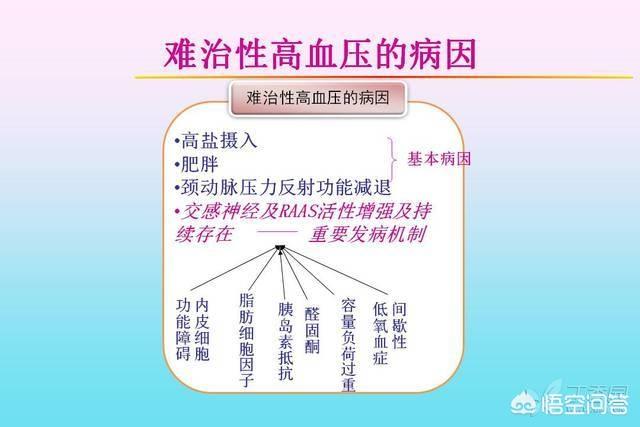
①Improve your lifestyle
Improving lifestyle is something that all hypertensive patients need to do, such as eating a light diet, increasing exercise, controlling body weight, psychological balance, quitting smoking and limiting alcohol. However, for patients with refractory hypertension, I would still like to make a special point to pay attention to eating less salt, the daily salt intake should be <6 g/d, as shown by urinary sodium excretion as every 24 h urinary sodium should be less than 100 nmol/d.
②Treatment with antihypertensive drugs
Refractory hypertension more than 3 and more than 3 kinds of antihypertensive drugs, generally use diphenhydramine antihypertensive drugs + diuretics + sartan or puerarin antihypertensive drugs of the classic program, really can not be used in some cases can be added to a small dose of aldosterone antagonist (spironolactone 20 ~ 40mg / d). For patients with increased blood pressure at night, it is noted that another dose of antihypertensive drugs can be taken before bedtime, and the better recommendation is prilosec or sartan antihypertensive drugs.
In conclusion, everyone should take their blood pressure seriously, especially if they are not doing well with antihypertensive medication.
Many patients with high blood pressure come to Dr. Xu's clinic, saying that the antihypertensive medication they are taking is not working well, their blood pressure is not coming down, and they need to change their medication.
Dr. Xu summarized the main reasons why these patients' blood pressure could not come down as follows.
1. Higher baseline blood pressure levels require a combination of medications to bring your blood pressure down. If your blood pressure is >160/100 or 20/10 higher than your target blood pressure, you often need to take two or more antihypertensive medications. Some patients take one medication and their blood pressure does not come down, so they switch to another medication. As a result, they switch to several medications and their blood pressure does not come down.
2. Bad lifestyle habits have not been changed. We say that the treatment of hypertension includes two carriages, lifestyle improvement and medication, and one is indispensable. Taking medication while continuing to eat and drink, smoke and drink, and not exercise, of course, blood pressure is not easy to come down. According to our latest survey data, the two main risk factors for hypertension in China are high salt intake and obesity.
3. Not taking the right medicine. Dr. Xu met a 30+ male hypertensive patient with elevated blood pressure around 140/100, ate Irbesartan blood pressure couldn't come down, changed amlodipine, blood pressure still couldn't come down, came to find Dr. Xu, after questioning and examination, found that this patient usually work under pressure, his heart rate was on the fast side, 86 beats per minute, so Dr. Xu adjusted his blood pressure lowering medication to betalactam, and suggested to observe blood pressure for a week. One week later the patient came in full of joy: "Dr. Xu, my blood pressure has come down, 120/80, and my heart rate is good, 70 beats per minute." Dr. Xu's purpose of this example is to tell you that you have to choose the right antihypertensive medication for you in order to benefit the control of your blood pressure.
4. Intractable hypertension. It is true that some patients have used four or five antihypertensive drugs (one of the antihypertensive drugs is a diuretic), but the blood pressure still can not come down to normal, we call it intractable hypertension. The reason for this is to look for the possibility of secondary hypertension. Dr. Xu had a hypertensive patient over 60 years old, belonging to intractable hypertension, and finally Dr. Xu found that this patient had serious "renal artery stenosis", so he implanted a stent in the renal artery, and then the patient's blood pressure was under good control.
5. Patients with abnormal renal function. Hypertensive patients are prone to renal function abnormalities, renal function abnormalities will make the blood pressure further increase, the two form a vicious circle, so patients with renal function abnormalities of blood pressure is more difficult to control, and when renal failure to a certain extent, sartans and Prilosec antihypertensive drugs can not be used, it is more difficult to increase the difficulty of treatment.
In conclusion, the earlier hypertension is treated and brought up to standard without target organ damage, the prognosis will be excellent.
Focus on health, focus on cardiovascular Dr. Xu!
Many hypertensive patients have such doubts, why antihypertensive drugs ate a lot, also suffered a lot, but the effect of lowering blood pressure are not good enough, and even 140/90 to reach the standard value can not be reached? For friends in such a situation, different situations, to cope with the methods of regulating blood pressure are different, it is difficult to say exhaustive, now can think of a few situations and you discuss it.
Some young and middle-aged hypertensive friends, the blood pressure situation is that the high pressure is not very high or even not exceed the standard, but the low pressure is relatively high, taking a variety of antihypertensive drugs, the low pressure just can not come down, such a situation, first of all, you should consider to strengthen the life control. The control of hypertension is always lifestyle intervention + rational use of medication to achieve good results. For example, there is obesity, serious overweight, but is not willing to lose weight, diet also do not pay attention to control, still adhere to the heavy taste, overeating, and do not strengthen the movement, tobacco and alcohol are not avoided, so that down, even if the medication, but also tend to achieve good antihypertensive effect.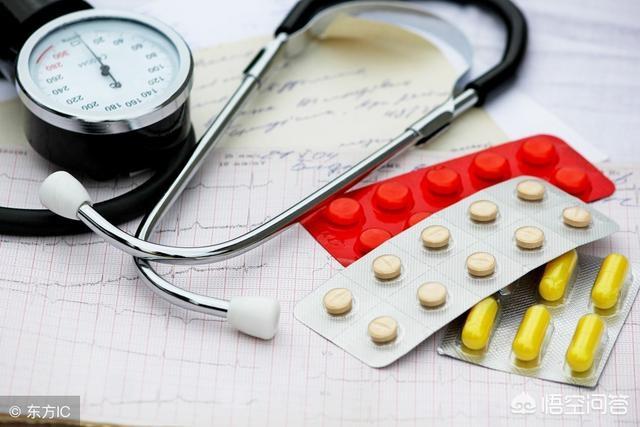
For friends in this situation, there is one thing to pay special attention to, that is to maintain a good and calm state of mind. Young and middle-aged friends, often on the old and young, work pressure life pressure are big, long-term tension, anxiety and other bad emotions, will affect the body's autonomic nervous system for the regulation of blood pressure, resulting in the phenomenon of low-pressure rise and not easy to come down, if you exist in the low-pressure high, take the relevant antihypertensive drugs but the low-pressure can not be the case, may wish to start from the spirit and mood to adjust, to maintain calm, optimistic mentality, the customer service anxiety is an important aspect of effective reduction of low pressure, the customer service anxiety and tension. Customer service anxiety and tension is an important aspect of effectively reducing low pressure.
There are still some friends, antihypertensive drugs ate a lot, also changed a lot of kinds, but the blood pressure is still not enough to control the ideal, for this kind of situation, you should also consider the question of whether the use of drugs is reasonable. If you want to control your blood pressure well, understanding your own blood pressure, figuring out the peak period of blood pressure fluctuation, choosing a good time to take medication, and selecting the right type of antihypertensive medication according to the high blood pressure situation are all good ways to strengthen blood pressure control and increase the chances of reaching the standard of blood pressure.
Some friends are worried about the adverse effects of long-term medication, so they should have eaten a piece of medicine, have to insist on eating half a piece, which belongs to the medication dose is insufficient to cause poor control of blood pressure; some friends are worried about the side effects of long-term medication, once a day drugs, have to be taken every other day, which belongs to the medication is not on time caused by poor control of blood pressure; some friends and nighttime high blood pressure, but insist on the morning dose of medication. In this case, it may be possible to switch to evening medication for better control of blood pressure stability. Similar to this bad medication compliance problems and examples are many, in short, want to control blood pressure, can not be taken for granted, the dose of medication, medication time, the number of times to take medication should be strictly comply with the doctor's instructions, and only in this way can be regarded as the real rational use of medication to lower blood pressure.
For friends taking two antihypertensive drugs in combination, it is also not recommended to choose their own medication, the joint application of antihypertensive drugs, for friends taking a single drug with poor blood pressure control, is a good way to improve the degree of blood pressure control and control of the rate of compliance, but the joint use of drugs should also pay attention to the rationality of drug combinations and synergistic, for example, if you choose to use a combination of diphenhydramine + sartan or prilosec, it is a very good combination, and If you choose the combination of sartan + Puli, it is a bad choice, the specific how to choose the combination of drugs, or according to the specific conditions of the body, after the doctor's assessment, to determine the choice of which two or three antihypertensive drug combination.
If two or three medications have been chosen, a diuretic has been added to the regimen, and a high dose of the medication has been reached, it is time to consider the problem of "refractory" hypertension.
First of all, "refractory hypertension" should not be defined on its own, it is not called refractory hypertension if the blood pressure does not drop after taking a variety of antihypertensive drugs, but it should be evaluated by a clinician to confirm whether it belongs to the situation of refractory hypertension. For patients with refractory hypertension, on the one hand, while strengthening life control, it is also necessary to pay attention to the sleep situation. Normally, for patients with refractory hypertension, it is recommended that they should sleep no less than 6 hours a day.
In addition to life control, the use of diuretics in the medication regimen should also be considered, not only should diuretics be used, but also to a reasonable dose, if the addition of diuretics to the medication regimen is still not able to control the blood pressure to the standard, can be evaluated by a doctor, the addition of low-dose spironolactone, the study found that, in the basis of the already combination of three antihypertensive drugs, for patients with refractory hypertension, the addition of spironolactone (an average of 25 mg daily dose) significantly improved the rate of blood pressure attainment in refractory hypertension.
Hypertension is a common cardiovascular disease in middle-aged and elderly people. Since hypertension is a major risk factor for stroke and myocardial infarction, after diagnosis of hypertension, a reasonable antihypertensive program should be formulated according to the condition of the patient to control the blood pressure in the target range, so as to reduce the risk of cardiovascular events. However, some patients have taken a lot of antihypertensive drugs, but their blood pressure is still high, what should they do? Next, Medical Senlution will analyze for you.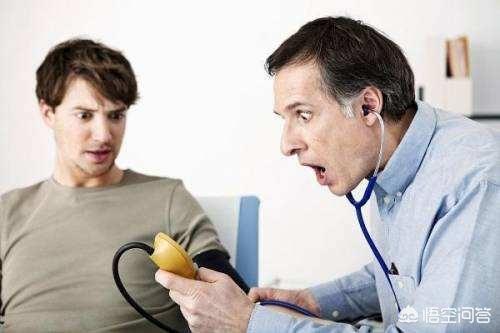
If the choice of antihypertensive medication is reasonable, the medication is adequate, regular medication is taken, and the poor lifestyle is changed, the blood pressure of hypertensive patients can basically be controlled in the target range. If the blood pressure does not reach the target for a long time, the most common reason is that the medication is not taken regularly. The half-life of antihypertensive drugs is both long and short, ranging from several hours to tens of hours. Different antihypertensive drugs have different number of daily doses, some of which can be taken once a day, such as amlodipine, timosartan, Benadryl, etc.; some of which need to be taken twice a day, such as nifedipine delayed-release tablets II, etc. Only a 24-hour supply of antihypertensive drugs can be used. Blood pressure can only be controlled in the target range if it is covered by antihypertensive medication 24 hours a day. Therefore, if your blood pressure is not in the target range, you should pay attention to whether the number of times you take your medication is sufficient. Secondly, one should pay attention to whether the medication is sufficient and should not increase or decrease the dosage without authorization. Insufficient dosage of medication and insufficient antihypertensive strength will also affect the effect of antihypertensive medication.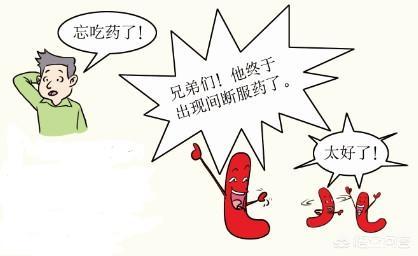
The treatment of hypertension is a comprehensive treatment, while taking antihypertensive drugs, should change the bad lifestyle, otherwise the blood pressure is still more difficult to reach the standard. Attention should be paid to whether there is a high salt diet, whether the body type is obese, whether a large number of alcohol abuse, long-term late at night, etc., if there is such a bad lifestyle, while the blood pressure has not reached the standard, should actively change the bad lifestyle, with regular medication, the blood pressure will reach the standard rate will be higher. Secondly, attention should be paid to whether the use of antagonistic antihypertensive drugs, such as licorice tablets, ephedra, glucocorticoids, non-steroidal anti-inflammatory drugs, contraceptives, etc., which can weaken the efficacy of antihypertensive drugs, so that the effect of antihypertensive greatly reduced.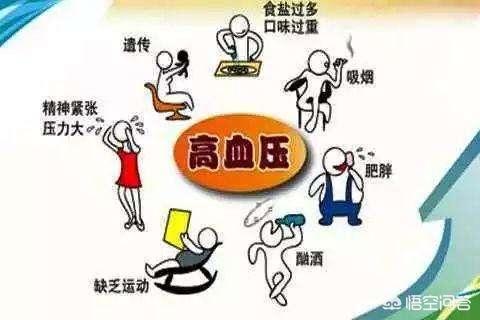
If all of the above factors are excluded, combined antihypertensive should be considered: patients using one antihypertensive drug, another antihypertensive drug can be added, dual drug to lower blood pressure, such as diphenhydramine + priligy/sartan, diuretics + priligy/sartan, diphenhydramine + diuretics, diphenhydramine + β-resisted blockers (such as metoprolol, etc.); dual drug to lower blood pressure for several months, blood pressure still does not meet the standard, should be excluded whether there is secondary hypertension, such as renal substantial hypertension, renal vascular hypertension, pheochromocytoma, etc.; if there is no secondary hypertension, three-drug combination of antihypertensive should be considered, the combination of three-drug combination of antihypertensive is prilosec/sartan+diphenyldipine+diuretics; three-drug combination of antihypertensive for several months, the blood pressure is still not up to the standard, can be based on the mountain of three-drugs, and then add another antihypertensive drug, such as spironolactone, β-blocker, α-blocker and so on, until the blood pressure is up to the standard.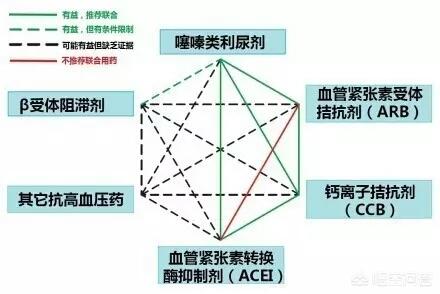
In summary, the use of a variety of drugs to reduce blood pressure, blood pressure still does not meet the standard, should be considered whether to comply with the doctor's instructions to take medication regularly, whether the dose of drugs is sufficient, whether to change the bad lifestyle, whether to use antagonistic antihypertensive drugs; if there is no such factors, should be ruled out the existence of secondary hypertension; if there is no secondary hypertension, can be increased in order to increase the number of antihypertensive drugs, multi-drug combination of lowering blood pressure. However, it should be noted that the adjustment of the drug treatment program should be adjusted under the guidance of a specialist physician, and unauthorized adjustment of drugs is prohibited.
Thank you all for reading!
We are looking forward to your attention and presenting more health knowledge to you!
Note: The images in this article come from the Internet, if infringement of copyright, please contact to remove. The content of the article is only as a health science popularization, not as a medical advice or opinion, and does not have the condition of medical guidance.
In fact, this type of problem is not uncommon in the clinical management of hypertension.
We must be clear: the antihypertensive effect of antihypertensive drugs is temporary, patients often need to take long-term adherence to control blood pressure, even if it has been controlled and stabilized, but if the sudden withdrawal of the drug will be abandoned, so we must understand that antihypertensive drugs only have a controlling role.
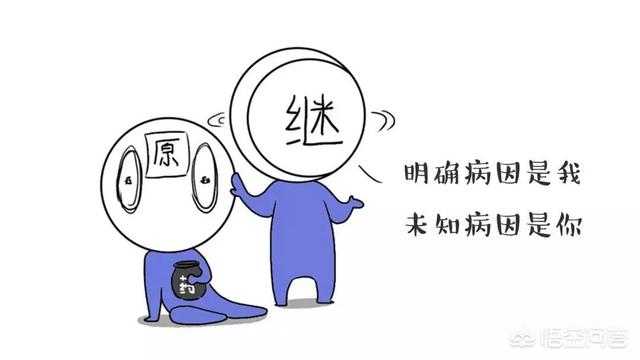
Underlying disease exists, so don't be a fool to take medication!
And a small number of patients who take antihypertensive drugs are not effective, need to check the causative factors, to see if there is a disease that causes blood pressure, this type of patients in the clinic is known as secondary hypertension, their blood pressure is elevated and the normals are different, just a by-product of the existence of the underlying disease because of the existence of the underlying disease, at this time, we ignore the underlying disease, and simply want to rely on the drug to reduce blood pressure, naturally, twice as much as half the effort, or even It's not a good idea to go back.
We should determine the patient's underlying disease through examination, find the root cause of the disease, and then carry out the treatment of the cause, when the patient's underlying disease is cured, then the patient's blood pressure does not need too much attention, but also will naturally decline, and ultimately return to the normal level.
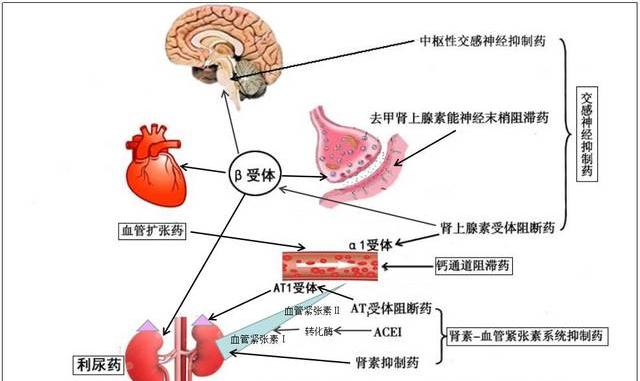
Increase the dose of medication or increase the type of medication used!
This should be the easiest way to think of, but either one must be done under the guidance of a medical professional, otherwise it is likely to backfire and unnecessary risks will occur.
While both are possible, in principle, increasing the type of medication used has a higher priority.
There are more types of antihypertensive drugs, each with its own indications and contraindications, and the combination of drugs is the most reflective of the level of the doctor's field, the level of the doctor can be based on the patient's condition with the most reasonable drug program, amplify the effect of antihypertensive at the same time, do not increase or even reduce the side effects of the drug.
Simply increasing the dosage of the drug is difficult to effectively expand the antihypertensive effect, but also exponentially expand the side effects of the drug, so we often recommend that patients use a combination of drugs to lower blood pressure.
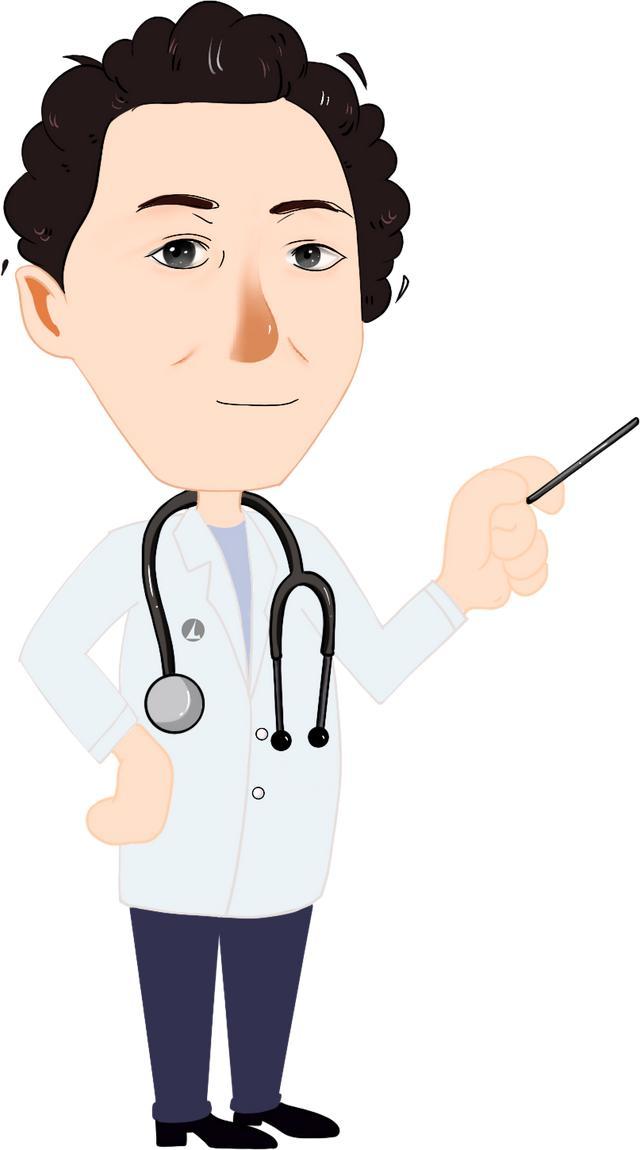
I hope my answer helps you!
If there's anything you don't understand, comment and private message me!
Recognize the nature of high blood pressure to know what to do.
[Meaning of Blood Pressure]
Blood pressure is usually referred to as arterial blood pressure, the role of arterial blood pressure is to drive blood into the network of tiny blood vessels and capillaries in order to supply tissue cells with nutrients. The power of blood pressure comes from the heart beat ejection of blood into the arteries, the heart contraction ejection of blood produces a high value of blood pressure, called systolic blood pressure, the heart diastole when the blood pressure falls, the emergence of low values of blood pressure called diastolic blood pressure.
The essential cause of hypertension lies in the deficiency of vital energy, poor operation of qi and blood, insufficient blood supply to the brain, and the body's self-regulatory response to ensure the function of the brain, an important organ of life. Elevated blood pressure affects the whole body and is associated with a variety of symptoms, all of which are related to deficiency of vital energy, poor operation of qi and blood, and insufficient blood supply to the brain. Elevated blood pressure indicates that there is something wrong with the operation of qi and blood and the blood supply to the brain, and only by solving the problem of poor operation of qi and blood and insufficient blood supply to the brain can we achieve the effect of truly treating high blood pressure.
First of all, blood pressure is only from the expansion of blood vessels, speed up the blood flow and other aspects of blood pressure control, not from the root of the treatment. Lowering blood pressure can not be overly rapid, should be smooth, slow lowering of blood pressure is best, generally 2 - 4 weeks of medication blood pressure to slowly maintain at normal levels, so when taking medication, can not be because of today's effect is not good to stop taking medication.
At the same time, high blood pressure medication also has a certain degree of drug resistance, if you feel the effect is not very good, must let the doctor know to change the drug. In addition, after taking the medication and stabilizing the blood pressure, you cannot increase or decrease the dosage or stop taking the medication at will.
In short, antihypertensive drugs just maintain blood pressure is not to regulate the root cause, so always follow your doctor's advice.
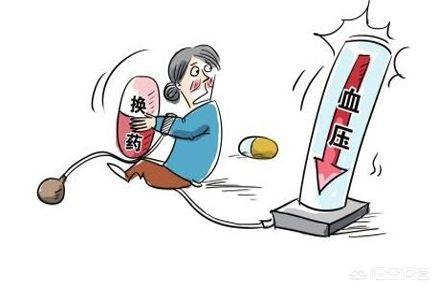
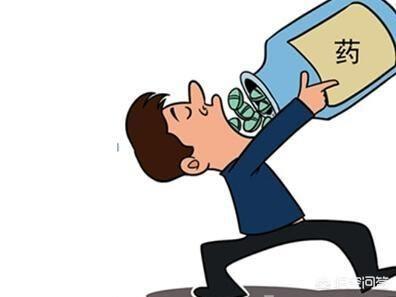
This question and answer are from the site users, does not represent the position of the site, such as infringement, please contact the administrator to delete.